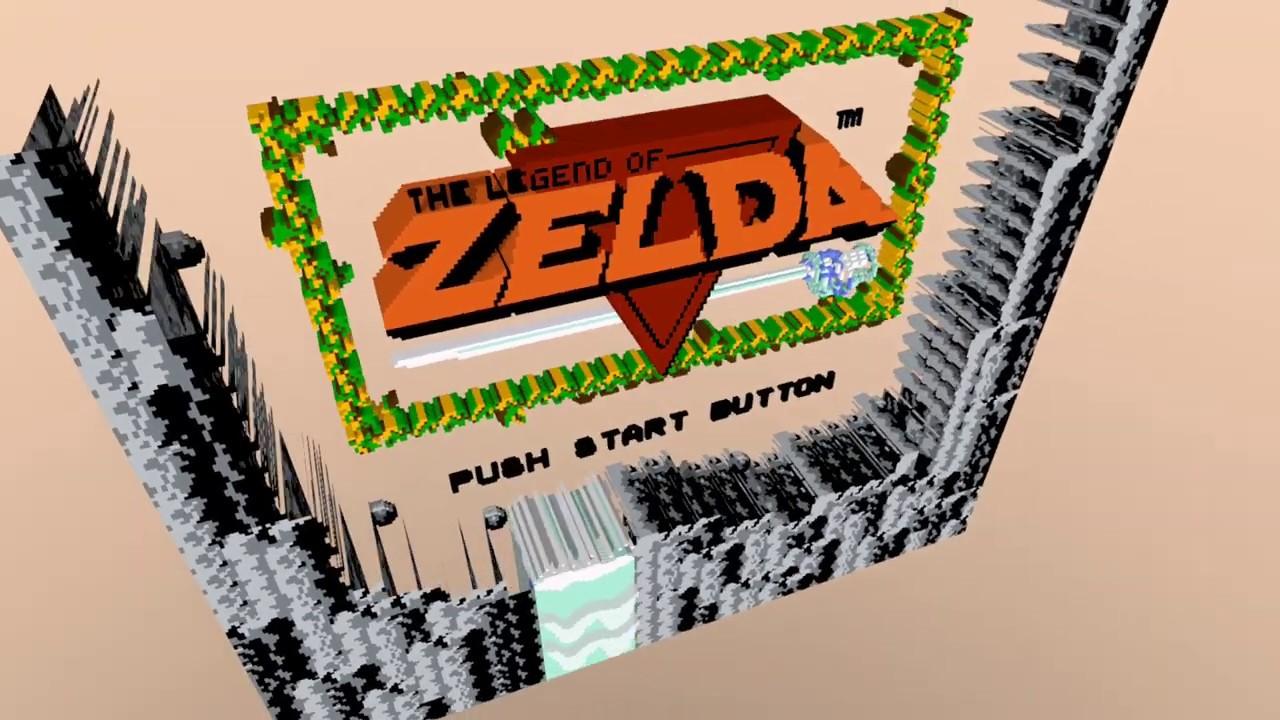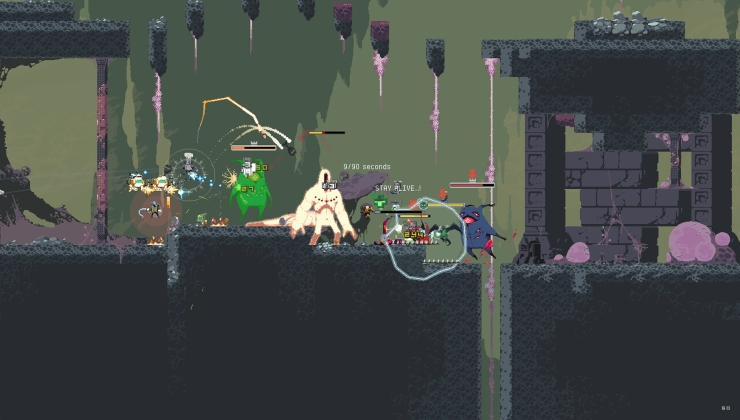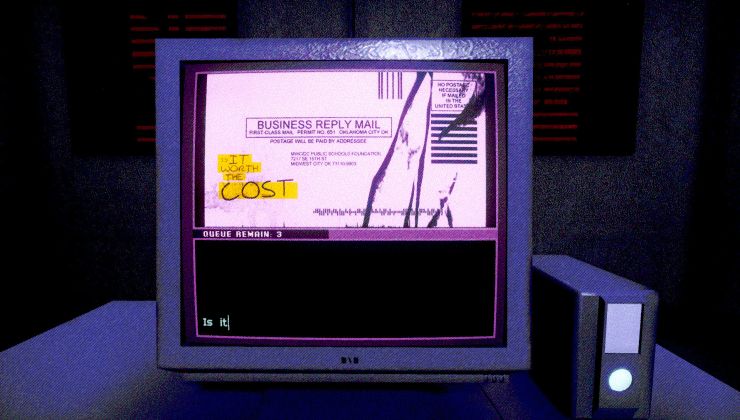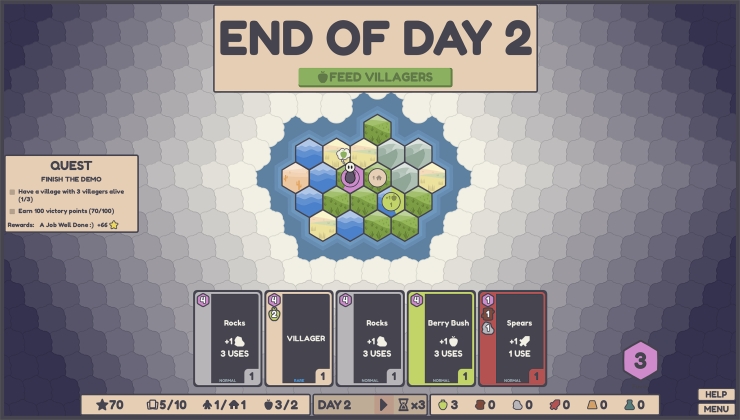3dSen PC is quite magical. An emulator that not only runs classic NES games, it changes the way you play them and it now has an Early Access release date.
Arriving with Linux support on June 19, it's been in development for quite a few years. It takes a lot more time than usually because of what it's doing. It makes each game 3D, giving you an entirely new perspective and integrates save states and Steam Input for easy gamepad support.
Over the last few months, Geod Studio have been providing regular Beta builds and it is genuinely impressive. With a list of games supported that continues to grow. Here's a quick test I did recently to show it in action:

Direct Link
It really is quite incredible. Such a fun idea for an emulator. It's one thing to keep seriously old games running, it's another to change how they're rendered entirely.
You can follow 3dSen PC on Steam.
(Now someone do the C64 or Spectrum. :) The NES wasn't really a thing in Europe.)
The NES wasn't really a thing in Europe.Maybe that was just your corner of Europe? Plenty of people had them up here. I had a proper computer of course but I had several Nintendo (and Sega) console plebs in my circle of friends back then.
Console fans please don't murder me, that pleb bit was a joke.
The NES wasn't really a thing in Europe.It most definitely was a thing.
The [video game crash of 1983](https://en.wikipedia.org/wiki/Video_game_crash_of_1983) hit USA hard, but didn't register much in Europe. The massive [NES sales](https://vgsales.fandom.com/wiki/Third_generation_of_video_games) in USA (34 million) was a turning point in history where the western video game industry exploded back into life. Imagine if things had gone the other way...
The NES launched in EU late 1986, over three years after Japan and nearly a whole year after USA, and the next generation was already looming. The belated launch, distribution issues, lack of marketing, being second fiddle to Sega in the market did nothing to boost sales.
Eventually Nintendo stepped up to properly distribute the NES in EU, but by then it was the 90's and the SNES was knocking at the door. Nintendo must love distribution issues as they keep having them with every damn console... :P
The NES eventually sold well in EU, while not quite matching the Master System. NES ~6 million, MS ~7 million.
From my Swedish point of view, everyone and his mother had a Nintendo console and Sega barely registered on the radar. ^_^
Anyway 3dSen is awesome.
When I say “a thing”, I mean it wasn't the phenomenon it was in Japan or North America. 6 million sales is nothing compared to the 34 million it sold in the US.The NES wasn't really a thing in Europe.It most definitely was a thing.
The [video game crash of 1983](https://en.wikipedia.org/wiki/Video_game_crash_of_1983) hit USA hard, but didn't register much in Europe. The massive [NES sales](https://vgsales.fandom.com/wiki/Third_generation_of_video_games) in USA (34 million) was a turning point in history where the western video game industry exploded back into life.The crash did register, but it didn't hit as hard. The European games market had already begun turning away from the first-generation consoles towards 8-bit computers by 1983, and North America's difficulties just accelerated that shift. At the time, it felt more like a generational change rather than a catastrophe. And, with little competition from either the US or Japan, the mid-'80s were actually the European games industry's gold-rush years. Ocean Software (now Bandai Namco UK) and Infogrames (now Atari) were founded in 1983. By '85, Ocean had the Konami arcade licence as well as a bunch of major movie tie-ins. Business was booming.
It's actually possible that if Nintendo had launched here in '83 or '84, soon after Japan, they might have found an even more receptive market than the US, but I doubt it. The main impact of the crash in Europe, although it's hard to believe today, was that consoles were seen as a thing of the past. Remember, computer games were being sold in filling stations and newsagents for pocket money prices at this stage. Why buy a console when you could get 20 games for the price of one cartridge? (And convince your parents that a computer would help with your school work, too. :D )
The NES launched in EU late 1986, over three years after Japan and nearly a whole year after USA, and the next generation was already looming. The belated launch, distribution issues, lack of marketing, being second fiddle to Sega in the market did nothing to boost sales.Yes, that's pretty much it. By late 1986, the Japanese consoles had a well-established, highly talented, indigenous European industry to contend with. And the next generation of home computers looming on the horizon. They were just too late.
Eventually Nintendo stepped up to properly distribute the NES in EU, but by then it was the 90's and the SNES was knocking at the door.
The best way I can describe how the NES and Sega Master System were seen by the European market is that they were a bit like the “PSOne” that Sony relaunched after the PS2 came out: outdated technology for younger kids who might not care that it wasn't the latest thing. Toys, really. (Which seems ridiculous when the whole market is games, but if you remember the PSOne, I hope you understand what I'm saying.) Less so with the SMS, because Sega was smart enough to emphasize is arcade connections*, which is possibly why Europe is one of the few markets it “won”. But both had to deal with the pricing problem, the established European developers (what good is a machine you can't play Starglider or Paradroid on?), and the rise of the 16 bit computers.
Sure, both had managed to save some face by 1993, and there's no doubt that the 16-bit generation very firmly re-established console gaming in Europe (assisted by the collapse of Commodore and Atari), but the 8-bit consoles always played second-fiddle to home computers.
*The only 8-bit console game I've ever played on real hardware was Space Harrier, back in 1987. And yes, it was better than any of the computer ports. (Although, much to my disappointment ever since, the friend who owned the console didn't have the 3D glasses. :( )
It seems there isn't alternatives, for now at least.
It's actually possible that if Nintendo had launched here in '83 or '84, soon after Japan, they might have found an even more receptive market than the US, but I doubt it. The main impact of the crash in Europe, although it's hard to believe today, was that consoles were seen as a thing of the past. Remember, computer games were being sold in filling stations and newsagents for pocket money prices at this stage. Why buy a console when you could get 20 games for the price of one cartridge? (And convince your parents that a computer would help with your school work, too. :D )
I heard games were even cheaper on school yards, which was an important reason for kids to prefer them over consoles as well... ;)
Last edited by Eike on 20 May 2020 at 11:03 am UTC
About the price of an empty cassette if you had a double deck?It's actually possible that if Nintendo had launched here in '83 or '84, soon after Japan, they might have found an even more receptive market than the US, but I doubt it. The main impact of the crash in Europe, although it's hard to believe today, was that consoles were seen as a thing of the past. Remember, computer games were being sold in filling stations and newsagents for pocket money prices at this stage. Why buy a console when you could get 20 games for the price of one cartridge? (And convince your parents that a computer would help with your school work, too. :D )
I heard games were even cheaper on school yards, which was an important reason for kids to prefer them over consoles as well... ;)
I heard games were even cheaper on school yards, which was an important reason for kids to prefer them over consoles as well... ;)About the price of an empty cassette if you had a double deck?
It was floppy discs for the computers that were far spread here in Germany (mainly Commodore 64), but yes, that kind of price. :D
(I had an MSX and was exchanging games via mail. The letter kind of mail, you know... :) )
Last edited by Eike on 20 May 2020 at 12:16 pm UTC
It was floppy discs for the computers that were far spread here in Germany (mainly Commodore 64), but yes, that kind of price. :DI had all but one of my C64 games on cassettes (didn't own a disk drive). That's how games were sold in shops. The one that wasn't on a cassette was one of those console-style cartridges you inserted into the slot at the back of the system. Can't remember which game it was.









 How to set, change and reset your SteamOS / Steam Deck desktop sudo password
How to set, change and reset your SteamOS / Steam Deck desktop sudo password How to set up Decky Loader on Steam Deck / SteamOS for easy plugins
How to set up Decky Loader on Steam Deck / SteamOS for easy plugins
See more from me